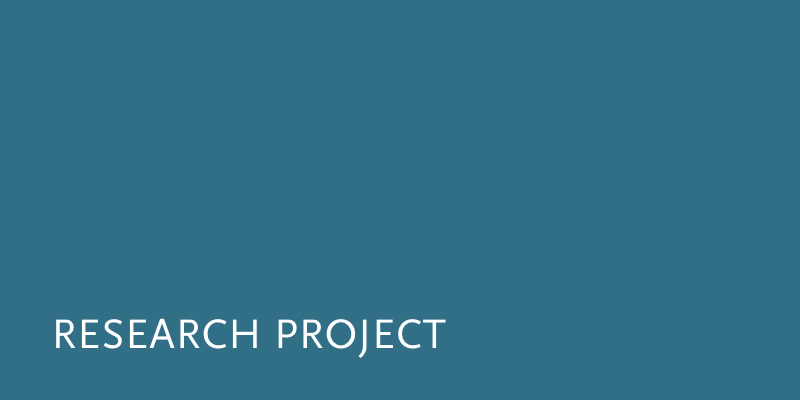
Internet of Things: Entrepreneurship & eGovernment
From the Internet of Computers to the Internet of Things
The internet of things refers to a vision of independent systems that collect and process data with the support of computers, communicate with each other and make decisions. Unlike in the “internet of computers”, in the internet of things, computers are integrated into their environment and not dependent on human inputs. These systems can therefore independently gather information about their environment through sensors, share this information in networks and act based on that information.
Thus, in the smart home, for example, your heating and lighting system can automatically respond to the time of the day and weather conditions, while in the smart city, the street lighting responds to detected light conditions. Under the heading Industry 4.0, new applications are being integrated into industrial production, which could lead to a new industrial revolution.
Opportunities & risks
The internet of things promises efficiency and a lot of convenient applications for people in their everyday and professional lives. Emergency call systems in automobiles could, for example, sense accidents autonomously. An emergency SMS is automatically sent to the nearest emergency control centre – even if the driver is unconscious. The internet of things facilitates the gathering and evaluation of information to an unprecedented extent and without human intervention. Startups can enter new markets and offer innovative solutions. Industry has to develop new standards for new products and propose new combinations with other innovations, such as 3D printing. At the same time, the security of individuals, their property and their data needs to be ensured. The questions of whether and how the systems that constitute the internet of things perceive and act remain to be resolved.
Research approaches and research questions
Our research project is divided into two areas. First, we examine the issue from the perspective of technology adaptation and commercialisation – both by startups and established companies. Secondly, we examine how governments can use these applications themselves and what role regulation plays in the internet of things. Specifically, this means:
- We investigate the first fields of applications, such as the Japanese initiative bGeige, which has set up a sensor network to measure radioactivity. The bGeige project explicitly aims to provide added value for the local population and at the same time actively integrates local people in production processes. But the economic benefits of intelligent manufacturing plants – especially ways of converting existing plants to use digitalised processes – are also a subject of our research.
- Does the internet of things have the potential to revolutionise public administration by generating a new wave of eGovernment? What legal grounds and limits do systems that are used by public administrations have? And how should the internet of things otherwise be managed publicly? We want to examine these questions from a legal perspective, with a particular emphasis on administrative and regulatory scholarship, and to go beyond legal issues that merely pertain to data protection and IT security.
| Duration | 07/2016 – 07/2017 |
| Sponsors | Cisco |
-
 Christian Djeffal, Prof. Dr.Former Associated Researcher | Project Leader
Christian Djeffal, Prof. Dr.Former Associated Researcher | Project Leader -
 Julian HölzelAssociate Researcher: Data, actors, infrastructures
Julian HölzelAssociate Researcher: Data, actors, infrastructures -
 Robin P. G. TechFormer Project Manager: IoT & eGovernment
Robin P. G. TechFormer Project Manager: IoT & eGovernment
Journal articles and conference proceedings
Djeffal, C. (2017). Das Internet der Dinge und die öffentliche Verwaltung: Auf dem Weg zum Smart Government? Deutsches Verwaltungsblatt (DVBl), 808-816. Publication details
Hölzel, J. (2017). Vom E-Government zum Smart Government. Deutsches Verwaltungsblatt, 132(16), 1015-1018. Publication details
Djeffal, C. (2016). eGovernment upside down. Internet Policy Review. Publication details
Djeffal, C. (2015). Neue Sicherungspflicht für Telemediendiensteanbieter: Webseitensicherheit jetzt Pflicht nach dem IT-Sicherheitsgesetz. MultiMedia und Recht (MMR)(18), 716-721. Publication details
Book contributions and chapters
Djeffal, C. (2017). Leitlinien der Verwaltungsnovation und das Internet der Dinge. In Klafki, A., Würkert, F., & Winter, T. (Eds.), Digitalisierung und Recht (pp. 81-117). Hamburg: Bucerius Law School Press. Publication details
Working paper
Djeffal, C. (2017). Leitlinien der Verwaltungsnovation und das Internet der Dinge: Vom E-Government Zum Smart Government Durch Verfassung, Gesetz, Organisation Und Strategie. HIIG Discussion Paper Series. Publication details
Other publications
Djeffal, C. Kommune 21 (2018). Künstliche Intelligenz – Leitlinien setzen. Publication details
Pernice, I. , Schildhauer, T., Tech R., & Djeffal, C. (Eds.) (2017). IOT & TRUST – Researchers Conference Booklet. Eine Studie des Alexander von Humboldt Instituts für Internet und Gesellschaft. Publication details
Djeffal, C. & Baack, S. (2017). Kunde, Zeitungsleser oder Aktivist? BürgerInnen im Kontext der Verwaltungsdigitalisierung. Digital Society Blog. Publication details
Djeffal, C. (2016). xGovernment n.0 oder von der Informatisierung der Begriffe, . Publication details
Robin P. G. Tech (2014). How Postmodern is 3D Printing? Digital Society Blog. Publication details
Robin P. G. Tech (2014). Will 3D printing Lead Us into a New Era of Production and Consumption? A peek behind the curtain of the hype. Digital Society Blog. Publication details
Robin P. G. Tech (2014). Hardware startup funding — What makes it so different from software startups? Web Magazin; Magazin für digitale Arbeit und Kultur. Publication details
Lectures and presentations
The social dimension of cybersecurity: the new German IT basic security standardsTransatlantic Conference: Building Common Approaches for Cybersecurity and Privacy in a Globalized World (Session: Cyber Security Certification Regimes). NYU Center for Cybersecurity, Humboldt Institute for Internet and Society. NYU Center for Cybersecurity, New York, USA: 03.10.2018
Christian Djeffal
Helferin oder Killerin? Künstliche Intelligenz in der öffentlichen VerwaltungLange Nacht der Wissenschaften 2018 (Session: Wissenschaft im Kurzformat). Lange Nacht der Wissenschaften e. V.. Humboldt Institut für Internet und Gesellschaft, Berlin, Germany: 09.06.2018 Further information
Christian Djeffal
Internet Governance Forum Deutschland (Session: IoT und Industrie: Deutsche Unternehmen auf unsicherem Terrain). Internet Governance Forum Deutschland. Wappensaal, Rotes Rathaus, Berlin, Germany: 15.11.2017Uta Meier-Hahn
4.0, KI, IoT – aber wie? Rechtswissenschaftliche Perspektiven auf neue Dimensionen der Verwaltungsdigitalisierung1. Fachkongress Digitaler Staat (Session: Digitale Verwaltung VIII: Prozessoptimierung und Automation in der Verwaltung). Behörden Spiegel. dbb Forum, Berlin, Germany: 09.05.2017
Christian Djeffal
Panels
Artificial Intelligence: Goverance and InclusionRightsCon Toronto 2018. Access Now. Beanfield Centre, Toronto, Canada: 18.05.2018 Further information
Christian Djeffal
Moderation of workshops and panels
Agents, Actants and AIAssociation of Internet Researchers Conference 2018: Transnational Materialities. Le Centre Sheraton Montréal Hotel, Montréal, Canada: 12.10.2018 Further information
Christian Djeffal
Organisation of events
Track III: In law we trust - in IoT we trust?IoT & Trust. From 23.02.2017 to 23.02.2017. Alexander von Humboldt Institut für Internet und Gesellschaft, Berlin, Germany (International)
Christian Djeffal, Julian Hölzel, Robin P. G. Tech
IoT & Trust – Researchers ConferenceFrom 22.02.2017 to 23.02.2017. Humboldt Institut für Internet und Gesellschaft, Berlin, Germany (International)
Julian Hölzel
Vom E-Government zum Smart Government?From 01.12.2016 to 02.12.2016. Humboldt Institut für Internet und Gesellschaft, Berlin, Germany (National)
Christian Djeffal, Julian Hölzel, Ingolf Pernice
